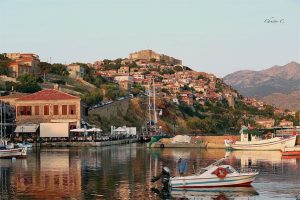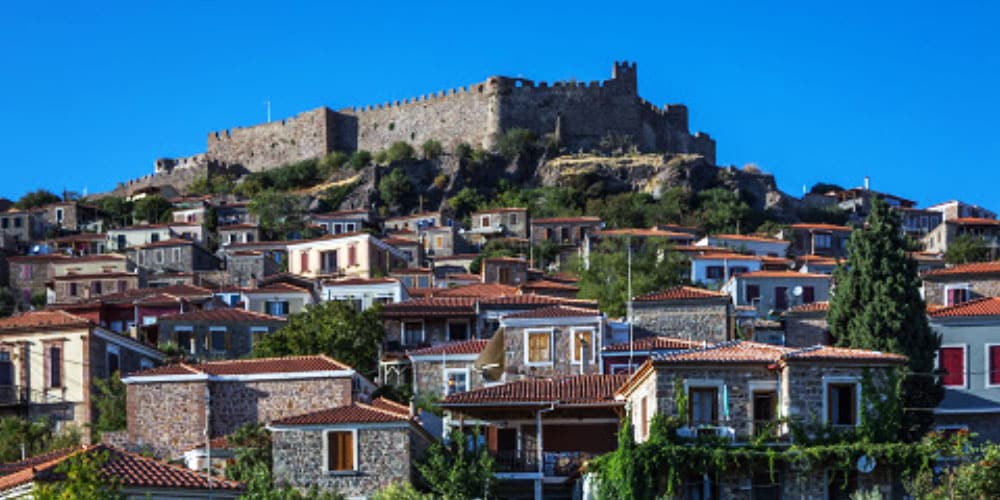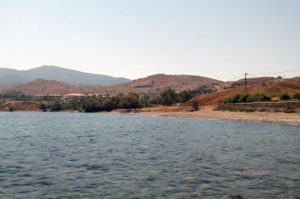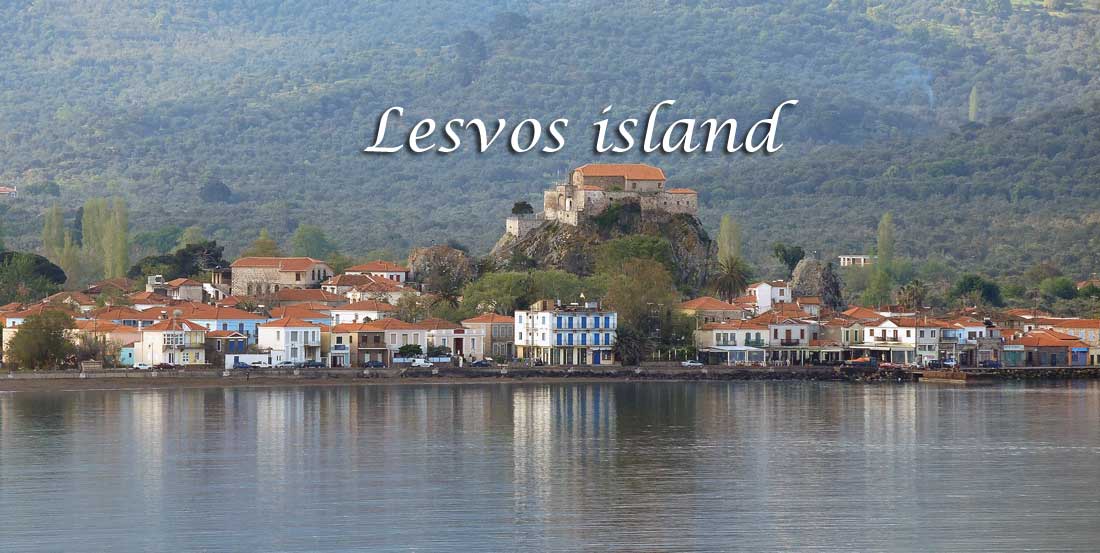The town of Molyvos (Mithymna)

You will see cobbled cobblestones, stone-built houses, arcades, arbors and bougainvillea, salgimi covering the streets of the traditional market and shops with their wares adorning the streets, while you can drink your coffee in the traditional cafes with hanging roofs.
You will get to know the picturesque port is not only a tourist attraction but also a vital place for the local population since fishing is a key factor in its economy.
Traditional houses (some from the 18th century), built of local stone and wood and painted in bright colors. In Mithymna is the second most important and largest Byzantine castle, which was repaired in 1373 by Francis Gatelouzos.

It is worth visiting the ruins of ancient Mythymna, where later buildings from the Roman era are also preserved, the public fountains of the Turkish era and the baths of the last century.
Also, the Archaeological Collection, which is housed in the Town Hall, the Library, the Art Gallery, the Molyvos Conference Center and the School of Fine Arts which are housed in traditionally restored buildings, as well as the house of the poet Argyris Eftaliotis and the country house of the writer Hlias Benezis, in Eftalou.

Dozens of hotels of all categories, rooms for rent and apartments serve the tourist traffic of the area. There is also a municipal camping site.
An important cultural event are the events that take place in Kastro, July and August. Traditional events are the celebration of Maundy Monday, the burning of Judas on Easter Sunday with feast and food, the Maritime Week at the beginning of July every other year and the feast of Agia Theoktistis, the last Sunday of July, where the traditional food keskeki is offered and wine.
